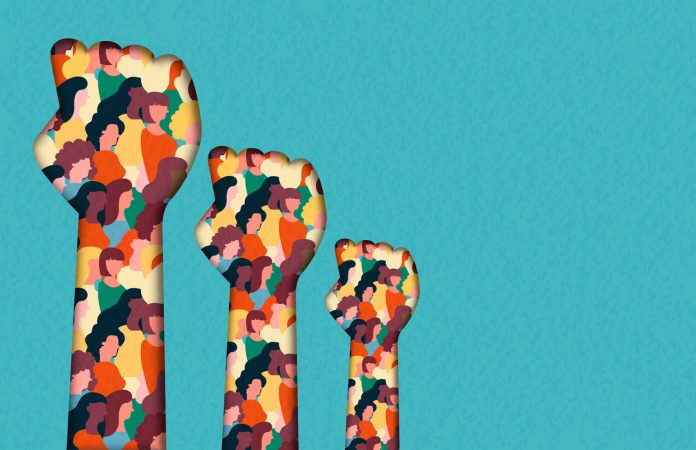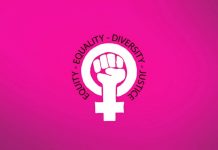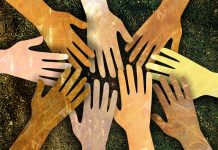This article is written by Indrasish Majumdar, LawSikho Intern. The article has been edited by Ruchika Mohapatra (Associate, LawSikho).
Table of Contents
Introduction
Life as we know it comes into play the very moment we open our eyes in this world. The preceding moment before this holds a very unique and special place for us. The moment being mentioned here is the birth-giving process through which various species survive and continue their very existence in this world. Reproduction is the harbinger of life on earth and the sine qua non in this process is the female in whose womb life form is created, nourished and protected until successful delivery of the progeny. The same life that has been mentioned above comes to a stop when we die or more symbolically we close our eyes and become one with mother earth. Darkness and shadow of death follow the life and vice-versa. Thus, it becomes quintessential that females be treated with the highest honour and respect that they rightfully deserve.
Status and perspective surrounding women in ancient India
In India, women have been viewed as a goddess, the creator of all living beings and the origin of life positioning itself as the ‘numero uno’ in the cycle of reproduction. Ancient India has always been a witness and flag bearer of the ‘mother goddess tradition’. It would be natural and logical to extrapolate this to today’s situation as well. This train of thought would be derailed catastrophically if it were to only gain knowledge of the plethora of crimes, violence and inhuman activities that women face as of now. We have set exemplary records and unimaginable rates of plummeting to the bottom which remains fairly unprecedented in human history in the treatment of women. The female that was once the subject of divine origin is now reduced to a mere object on which violence is down poured, thereby severely abusing her. Now, she does not have the basic freedoms on which the very foundation of the human race stands. Thus, it becomes a necessity of utmost importance that we prioritize the issues regarding the status of women in India with regard to their freedom and equality in society.
The tale of freedom, equality and equity
The above three words are intertwined with each other in such close proximity that a systematic breakdown is required to understand them comprehensively. At the very inception of this analysis, it is to be noted that the very existence of women’s struggle and fight for liberation from the shackles of patriarchy is shameful for the entire society which apparently tries to portray itself as progressive, civilised and fair.
The main issue today revolves around gender equality which is supposed to make our society gender-neutral. It is partially correct as far as the methodology goes. This article tries to show that gender equity is the way to achieve gender equality and why the former should be adopted in the initial phase to attain the latter, which would be the obvious by-product of the former. The United Nations Educational, Scientific and Cultural Organisation (UNESDOC) provides a fair distinction between the two in the following paragraph:
“Gender equality, equality between men and women does not mean that women and men have to become the same, but that their rights, responsibilities and opportunities will not depend on whether they were born male or female. Gender equity means fairness of treatment for men and women according to their respective needs. This may include equal treatment or treatment that is different but which is considered equivalent in terms of rights, benefits, obligations, and opportunities.”
The word “equality” can be now safely considered as replicating men in every sphere through an essential process of copycat. Technically, this does establish certain standards of equality but there is no uniqueness in that, the entire beauty of the other sex fades away, giving rise to a replica of males.
It has been very rightly said that equality is the end goal and equity is the means to get there.
Gender equality does not mean that women and men will be the same; it attempts to give us a world where they both get equal opportunities, treatment, rights and resources irrespective of whether they are born male or female.
We have to understand that the end goal here is to make both sexes reach a point of zenith and maximise their strong points. Equity is giving everyone what they need to become successful while equality means treating everyone the same. Equality though it sounds just and fair, is guilty of destructive generalisation. Men and women are different, a forceful way to make them mirror copies of each other is not only absurd but also destroys the very fibre of uniqueness and diversity. As they are different they should be provided differently to reach the same goal. There is no level playing ground and this very fact would collapse the theory to provide them with the same opportunities for achieving the same result. Equity leads to equality. Through equity, a level playing ground can be reached after which equity shall prevail to eliminate any biases. Fairness is yet another term that keeps oscillating between equality and equity. It holds great directional value for the establishment of an ideal society but the opposite also has to be considered i.e. its misguided interpretation. Usually, fairness raises the very apparently pertinent question of why he/she and not I? The following example would create a link between fairness, equity and equality;
In a situation where several kids are being provided food, picture this; assume everyone gets one apple at a time. A kid who has received one apple observes another kid go up to the distributor, whisper something in his ears and get two apples. The first kid raises the very elementary question in his mind that this is not fair, that why he got only one apple while the other kid got two? He comes to the conclusion that it is not fair. Now, this definition of fair means equals treatment of all. The kid who got two apples had previously whispered something to the distributor, he mentioned that he was extremely hungry and a single apple will not satisfy his hunger, due to which he received two according to his hunger’s demand. Now, it has to be noted here that the first kid tagged our case situation as unfair not due to his hunger but due to the fact that another kid got more than him.
This prevailing situation portrays the demand for equality, treatment of unequal in an equal way, which is highly unjust. The other kid getting more was due to the severity of his hunger which was more than the first kid and thus, is fair, contrary to the belief of the first kid. Thus, treating everyone exactly the same actually is not fair, what equal treatment does erase our differences and promote privilege, equality always does not promote true fairness. If the gender gap is treated with the concepts of equality before equity, it may lead to a potentially never-ending cycle.
Conclusion
The blueprint for women empowerment has been laid down, however, the nation is yet to create a structure of strength and permanence promulgating notions of equity and empowerment on the basis of the layout. It can only be hoped that in the upcoming years’ women empowerment shall prove its worth. We must realize how integral are women as a part of society and how indispensable a role they play in determining the destiny of the nation. As rightly commented by Swami Vivekananda “ The Best thermometer to measure the progress of a nation is its treatment of women”. Every person should come forward to ensure equal status for women in all spheres of life, by providing them with due recognition which becomes all the more important. The best possible way to achieve empowerment is to generate public awareness with regard to the same, a crucial element in making judicial activism successful. Committees dedicated to the cause of emancipation of women such as the National Human Rights Commission or The National Commission for Women should be allies in acclaiming incidents of Human rights Violation. The Judiciary should play a proactive role in protecting the rights of women and should adopt stringent policies to punish the offenders. Along with increased vigilantism, the court should also try and deliver more judgments in approbation of female victims, to make them feel safe and confident.
Currently, feminism faces criticism from certain factions of society as some of its forms prefer the upliftment of women against men, which is not balanced in nature. Following this path may lead to a society where males will be suppressed and then there will be men’s fight for equality against gender oppression, and thus the status of gender gap will never close and will function in a to and fro motion, which does not promise us of a stable society. Thus, the equity should be practised till a level playing ground is reached and then equality should be implemented to provide fair and equal conditions irrespective of unrelated and superficial attributes which promote inequality.
References
- https://everydayfeminism.com/2014/09/equality-is-not-enough/
- https://diningforwomen.org/international-womens-day-womens-equity-vs-equality/
- https://www.pipelineequity.com/voices-for-equity/gender-equity-vs-gender-equality/
- https://www.un.org/womenwatch/osagi/conceptsandefinitions.htm
LawSikho has created a telegram group for exchanging legal knowledge, referrals and various opportunities. You can click on this link and join:
https://t.me/joinchat/J_0YrBa4IBSHdpuTfQO_sA
Follow us on Instagram and subscribe to our YouTube channel for more amazing legal content.
 Serato DJ Crack 2025Serato DJ PRO Crack
Serato DJ Crack 2025Serato DJ PRO Crack











 Allow notifications
Allow notifications


